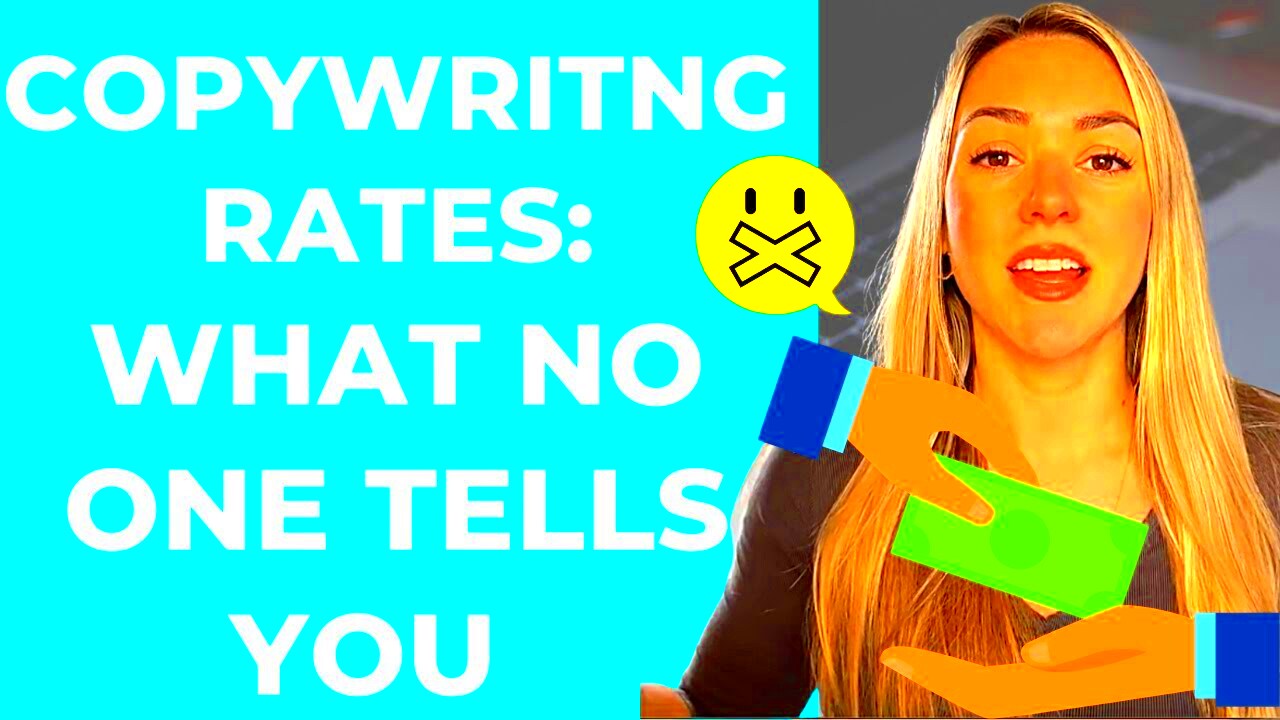As a freelance copywriter, you are tasked with creating promotional material for various companies like advertisements, website copies and social media posts. Copywriting is different from other forms of writing because it aims at convincing people to perform certain actions such as purchasing some good or subscribing to a newsletter.Freelance copywriters work on their own and offer their services to different clients. They need to understand various types of copy, such as:To be an effective copywriter, one must have good writing skills, creativity, and knowledge of the target audience.
In addition, freelancers should manage their time efficiently and maintain communication with clients so as to provide them with the necessary content.Various aspects have to be considered when determining the charge for freelance copywriting, including personal expertise, experience and skill level, as well as project difficulty. It can be summarized in the following factors:Per-word or per-hour rates are commonly used by many freelancers. You might also have a fixed amount for a project. For your convenience, here are some straightforward recommendations to consider while making decisions:Depending on your proficiency and experience, modify your prices.Different pricing strategies are required for different copywriting projects.
To charge for the various kinds of works follow these instructions:Never forget to factor in the client’s budget, requirements of the project at hand, and your level of expertise when deciding on your price quotes. A comprehensive proposal can assist clients in comprehending how much they are paying for what services from you.
- Sales Copy: Written to sell products or services directly.
- SEO Copy: Optimized for search engines to improve website visibility.
- Content Marketing: Informative content aimed at engaging and educating the audience.
Determining Your Rate Based on Experience and Skill

- Experience: Beginners may charge less while more experienced copywriters can command higher rates.
- Skill Level: Specialized skills, such as SEO expertise or technical writing, can justify higher rates.
- Project Complexity: Simple tasks might be priced lower compared to complex projects requiring extensive research.
| Experience Level | Typical Rate per Word | Typical Rate per Hour |
|---|---|---|
| Beginner | $0.05 - $0.10 | $20 - $50 |
| Intermediate | $0.10 - $0.25 | $50 - $100 |
| Experienced | $0.25 - $1.00 | $100 - $200 |
Also Read This: Top 10 Advertising Experts on Fiverr in 2024
How to Charge for Different Types of Copywriting Projects

- Website Copy: This includes home pages, landing pages, and product descriptions. Charge based on the number of pages or word count. Rates typically range from $100 to $500 per page, depending on complexity.
- Blog Posts: Prices are usually set per word or per post. A common rate is $50 to $200 per post, based on length and research required.
- Ad Copy: Short and impactful. Charge per ad or per hour of work. Rates can range from $100 to $300 per ad, depending on the campaign’s scope.
- Social Media Content: Includes posts, captions, and advertisements. Pricing can be per post or as part of a monthly package. Rates often vary from $30 to $150 per post.
Freelance copywriters need a pricing strategy that supports long-term success. A well thought-out pricing plan guarantees fair compensation and builds a sustainable business at the same time. Below are important elements to consider:A tiered pricing structure could be a great option for you where you have different levels of services provided at various prices.
This can accommodate a wider array of clients and project sizes. For instance:Moreover, one should consider the following as an engagement in strategies to promote your services effectively so as to get more clients and build strong long-term relationships.All communications should be conducted using a formal manner. In addition to this, you should also make certain that all inquiries regarding your charges are satisfactorily responded to by the clients. This will go a long way in creating confidence and avoiding confusion.Adjusting your rates according to market need is a knowledgeable technique for remaining competitive and making the most of your cash inflow. How to properly adjust fees:
It is important that any changes in fees are communicated effectively to both current and future clients. By giving prior notice and clarifying the motivations behind increased price, you will be able to sustain the goodwill relationship with your customers.
Also Read This: Should I Give a Fiverr Seller My Instagram Login Info?
Setting Your Pricing Strategy for Long-Term Success

- Understand Your Value: Recognize the unique skills and experience you bring to the table. Pricing should reflect your expertise and the quality of work you deliver.
- Market Research: Look at what other freelance copywriters in your niche are charging. This can help you set competitive rates without undervaluing your services.
- Flexible Pricing Models: Offer various pricing options, such as hourly rates, per-project fees, or retainer agreements. This flexibility can attract different types of clients.
- Regular Reviews: Periodically review and adjust your rates based on changes in your skills, experience, and market conditions. This helps ensure your pricing remains relevant.
| Service Level | Features | Price |
|---|---|---|
| Basic | Standard content creation, minimal revisions | $100 - $200 |
| Standard | Comprehensive research, multiple revisions | $200 - $400 |
| Premium | In-depth strategy, premium content, extensive revisions | $400 - $800 |
Also Read This: Is Fiverr a Good Side Hustle?
How to Communicate Your Rates to Clients

- Be Transparent: Clearly outline your rates and what is included in your services. Avoid hidden fees or vague pricing structures.
- Provide Detailed Proposals: Offer a written proposal that breaks down the costs associated with the project. This can include rates for different components, such as research, writing, and revisions.
- Highlight Your Value: Explain the benefits of your services and why your rates are justified. Showcase your experience, past work, and any unique skills that add value.
- Be Open to Negotiation: While you should have a clear pricing structure, be willing to discuss rates with clients. Understand their budget constraints and be prepared to adjust if necessary.
Also Read This: Is Fiverr Stock a Good Buy?
Adjusting Your Fees Based on Market Demand
- Monitor Industry Trends: Keep an eye on changes in the market and industry standards. If demand for copywriting services increases, it may be a good time to raise your rates.
- Evaluate Your Workload: If you find yourself consistently overbooked, consider increasing your rates to balance supply and demand. This can also help manage client expectations and workload.
- Assess Your Skill Growth: As you gain more experience or develop new skills, adjust your fees to reflect your enhanced value. Higher rates can be charged for specialized or advanced services.
- Client Feedback: Listen to feedback from clients about your pricing. If you receive consistent feedback indicating that clients find your services valuable but costly, it might be a sign to re-evaluate your pricing strategy.
As a freelancer, negotiating prices with clients is commonplace. In order to have both parties come out satisfied, it is essential that these conversations are done in a professional manner. Below are some useful tips for conducting price negotiations:It is necessary that you always document all agreements done to avoid future confusions during negotiations. Use of the written agreement is also important in that it serves as guide for both parties and could also lead to clarity of terms.As a freelance copywriter in a demanding setting, it is essential that you have the key ingredients for you to be successful. Here are some approaches to distinguish yourself and draw in new customers:To ensure that you stay competitive in the market; adjust your pricing usually, assess service provision and analyze promotional policies. Whenever there are shifts in the marketplace, make necessary changes to improve on what you give. Seek comments for continuous refinement of what you offer.First and foremost, it is imperative that you look at global benchmarks while evaluating your own expertise in the field. Look for factors like how complex the projects are, and how long they may take. Also, utilize a dynamic pricing model that fits various projects and clientele.Be transparent and frank about your charges. Make a proposal that is thorough in explaining how much it will cost for the project. Point out the benefits you offer and let them know you are willing to negotiate should it become necessary.First, gather your thoughts to facilitate understanding; this requires you to think about what’s acceptable for you in terms of money and the worth of service delivered. Be ready with more than one price offer but stay firm on the price ceilings. Be decisive enough to walk away even if it means giving up a project that doesn’t resemble your desperate minimums. Therefore,
- Have the acceptance restrictions available as well as some low limit amounts depending on how significant it maybe.
- Then have several flexible pricing options at hand while maintaining some kind of rigidity concerning these price limits.
- A better option could simply be showing your disinterest in pursuing such assignments anytime soon when find out that they are not offering enough minimum requirements.In order to keep pace with industry trends, experience and demand for services provided regularly by you, always revise your fees. Change your rates once in a year or when there are major shifts in your skill set or economic environment.To upgrade your skills always, develop a great portfolio, communicate with industry specialists and provide excellent client service. Keep in touch with market trends and change your strategies when necessary.
Also Read This: Top 10 Ghostwriting Writers on Fiverr
Handling Pricing Negotiations with Clients
- Be Prepared: Before negotiations, know your lowest acceptable rate and the value you offer. This helps you stay firm and confident during discussions.
- Explain Your Rates: Clearly articulate why your rates are set at a certain level. Highlight your experience, skills, and the quality of your work to justify your pricing.
- Offer Flexibility: Be open to negotiation, but set clear boundaries. You can offer options such as discounts for long-term contracts or lower rates for smaller projects.
- Know When to Walk Away: If a client’s budget is too low and cannot be adjusted, be ready to walk away. It’s better to turn down a project than to accept work that undervalues your services.
Maintaining a Competitive Edge in Freelance Copywriting
- Continuously Improve Your Skills: Stay updated with industry trends and continuously enhance your writing skills. Consider taking courses or attending workshops to expand your expertise.
- Build a Strong Portfolio: Showcase your best work in a professional portfolio. Include diverse examples of your copywriting skills to demonstrate your versatility and expertise.
- Network with Others: Engage with other professionals in the industry through networking events, social media, and online forums. Building relationships can lead to referrals and new opportunities.
- Offer Exceptional Customer Service: Provide excellent service by being responsive, meeting deadlines, and exceeding client expectations. Positive reviews and repeat business are often the result of great service.




